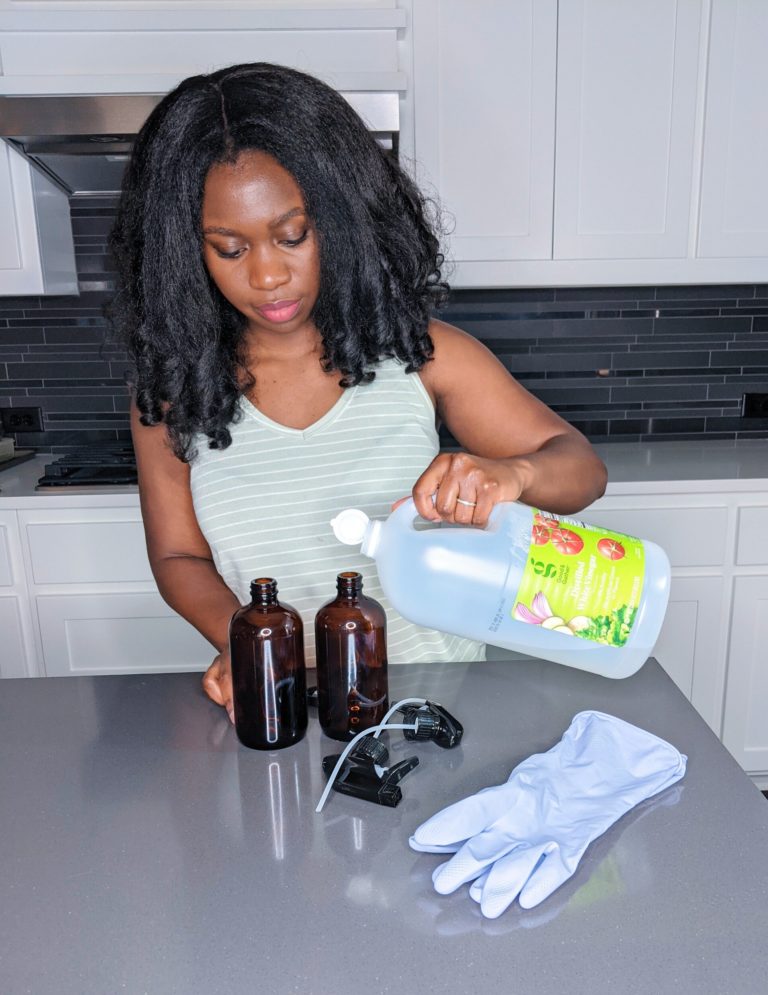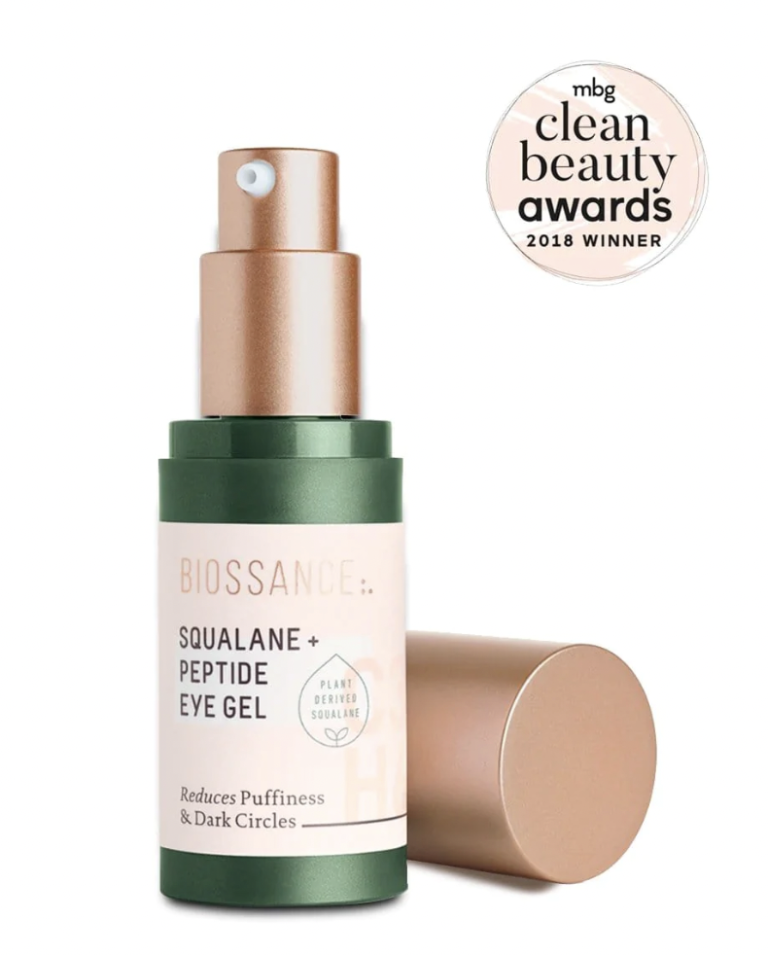13 Best Teas for Hormone Balance
There’s something comforting about sitting down to enjoy a hot cup of tea. But did you know that you can use herbal teas for hormonal balance? It’s true. Some of your favorite tea blends are a natural way to support hormone production, detoxification processes, and even regulate your menstrual cycle.
Symptoms like mood swings, irregular periods, hot flashes, night sweats, weight gain, and irregular menstrual cycles can be minimized and managed with the use of herbs along with other lifestyle changes. In my own experience, I’ve used herbal teas to help manage and reduce symptoms related to uterine fibroids and have less painful periods.
After reading this post, you’ll want to add tea to your daily routine – for health and for fun.
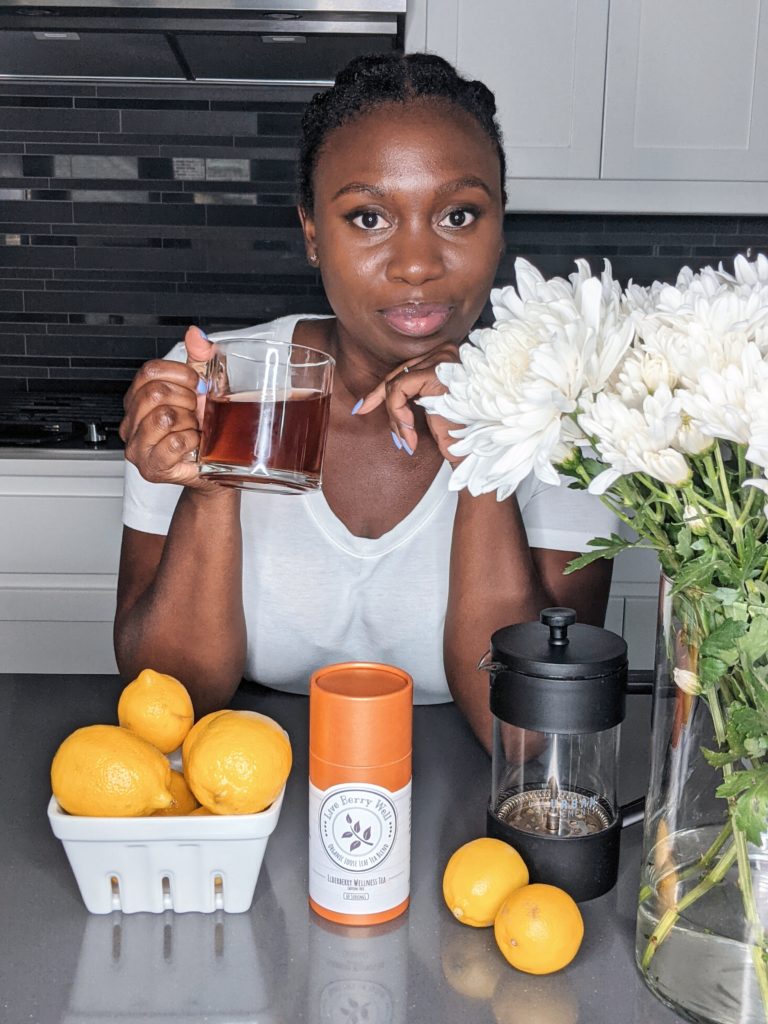
Why tea is a great way to enjoy herbs
Sure, most herbs can be taken in pill or capsule form. I’m not here to discourage that method. But aside from helping to resolve hormonal imbalances, herbal teas are appealing because of the additional benefits.
Consuming warm or hot water can be helpful for digestion.
Also, tea is another way to up your water intake with some added benefits. It is extremely important to stay hydrated when using herbs to flush out toxins.
There’s just something about taking a moment to enjoy a hot cup of tea while you relax or do something leisurely.

Start Tracking Your Cycle
Subscribe to have tips delivered straight to your inbox!! PLUS get a cycle tracker!
5 Tips for getting the most out of your herbal teas
- Always look for an organic tea formula. The last thing you want in your healing blend is pesticides.
- Choose loose leaf when possible. These tend to be better quality and have whole leaves for more benefits.
- Use the cleanest water available to you for your brews.
- Drink plenty of water in addition to your teas. Some of these herbs are detoxifying and require proper hydration to avoid toxins resettling.
- Ditch the sweetener. Try to learn to love your tea unsweetened. Try adding lemon or lime to get a more palatable flavor instead.
Best Teas for Hormone Balance
So, I’m going to give you the rundown on the best teas for hormone balance.
And since I’m all about cyclical living, I’ve included which menstrual cycle phases these teas best support. Having said that, feel free to try these teas any time of your menstrual cycle.
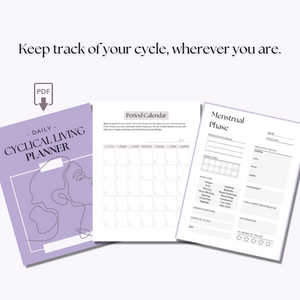
Start Tracking Your Symptoms
Get my cyclical living planner to track your cycle, symptoms and plan your life.
1. Red Raspberry Leaf
You’ve probably already heard of this one. Red raspberry leaf tea is known as a uterine tonic, and it’s commonly used to reduce menstrual cramps. It’s also packed with antioxidants and other nutrients, including B vitamins, iron, and magnesium. I’ve also noticed that when I use red raspberry leaf tea I don’t experience excessive bleeding.
Suggested phases: Late luteal, Menstrual
2. Stinging Nettle Leaf
Nettle leaf is known for its liver-supporting and anti-inflammatory properties. It also contains Vitamins A and C and promotes better digestive health.
Suggested phases: Menstrual, Follicular
3. Tumeric
Tumeric contains a compound called curcumin. This compound is a natural blood thinner and promotes better circulation. It’s also known for it’s pain-relieving properties. Just remember to take a few black peppercorns to help with the absorption of curcumin.
Suggested phases: Menstrual, Ovulatory
4. Ginger
Ginger is also known for its anti-inflammatory and circulatory benefits. Ginger can be very beneficial for conditions such as polycystic ovary syndrome (PCOS) and fibroids as it helps with blood sugar stabilization and can help induce ovulation. Ginger is also known to be beneficial for your digestive system.
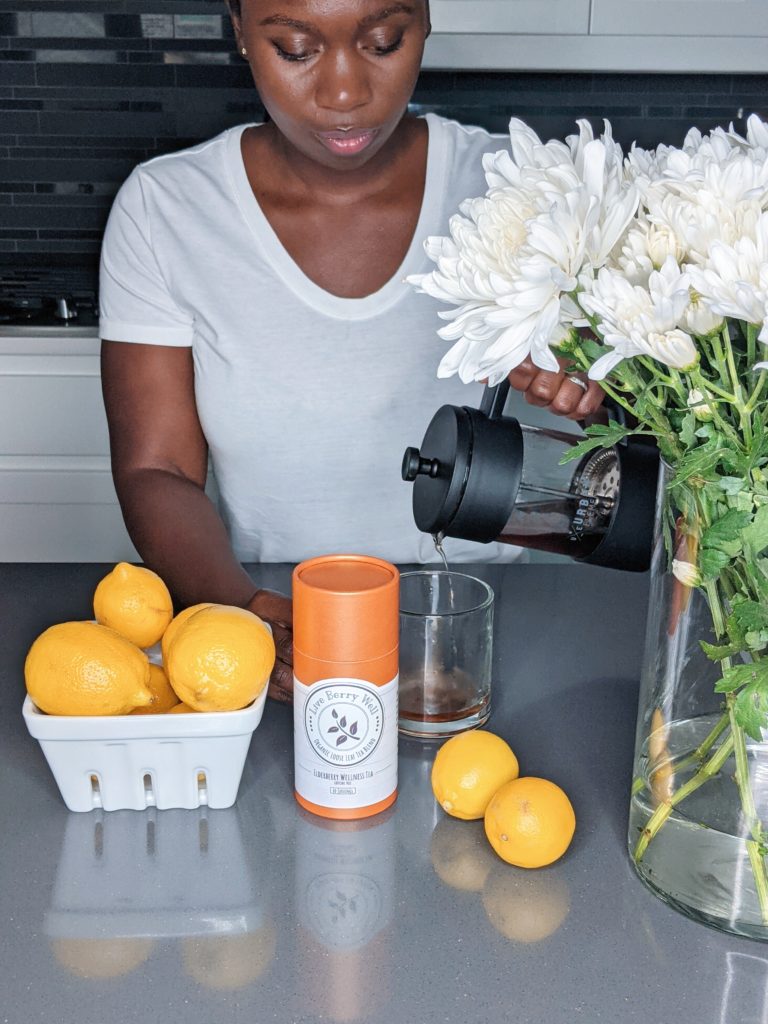
5. Lemon Balm
Suggested phase: Ovulatory, Luteal, Menstrual
Lemon balm is primarily used for stress and anxiety reduction. Usually I use blends with lemon balm at night for because it promotes sleep and better digestion. Just avoid this one if you’re taking sedatives or thyroid medications.
Suggested phases: Menstrual, Follicular
6. Holy Basil
Also known as Tulsi, Holy Basil is an adaptogen that helps reduce stress and anxiety by regulating cortisol levels.
Suggested phases: Follicular
7. Dandelion Root
You probably know dandelion’s as the fuzzy little weeds that pop up on lawns. But their roots are actually packed with antioxidants. Dandelion root is also antimicrobial and known to support kidney and liver function.
Suggested phases: Ovulatory, Luteal
8. Burdock Root
Traditionally burdock has been used for digestive health. However, it also works as a blood detoxifier.
Suggested phases: Ovulatory, Luteal
9. Mint (Spearmint/Peppermint)
Mint is a staple in my tea rotation. It’s great for bloating and digestive issues and even has a mild stimulant effect. So, it’s best to avoid mint before bed. Many women with PCOS find spearmint tea to be helpful in reducing facial hair growth and other PCOS symptoms. This is likely because of it can help regulate excess testosterone levels in women.
Suggested phases: Luteal
10. Vitex/Chaste Berry
Vitex berry is most commonly known for its ability to raise progesterone levels. Women with short or irregular cycles may find it helpful for regulating their cycle.
Suggested phases: Luteal
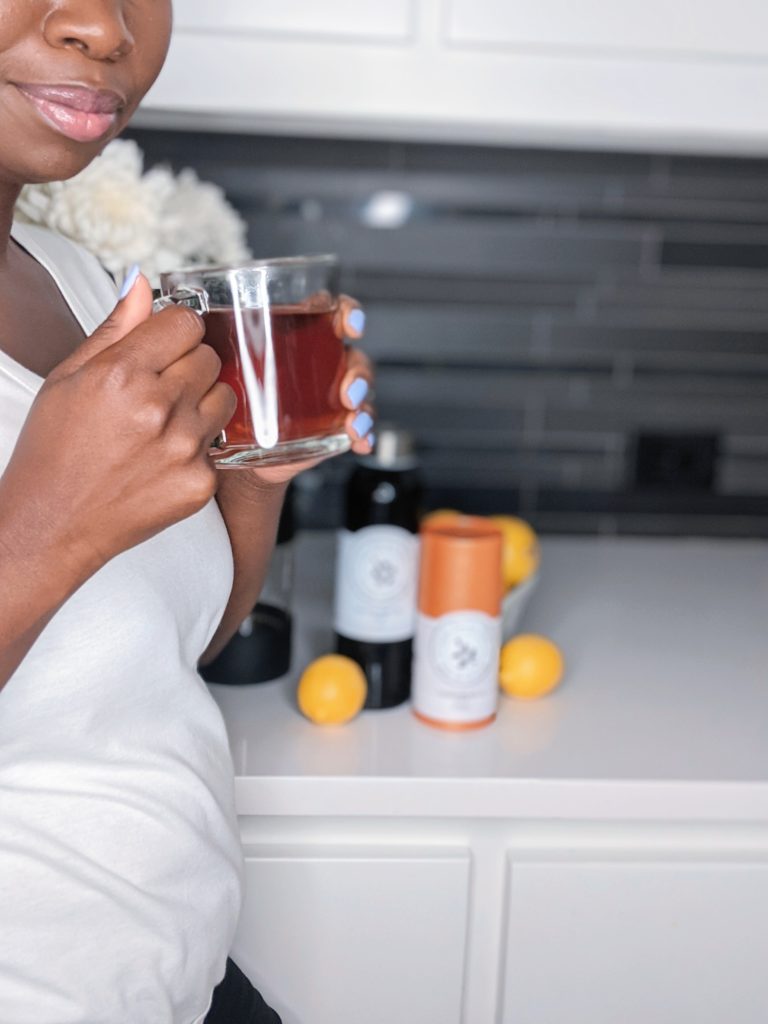
11. Green Tea/Matcha
There’s some controversy about whether people with hormonal issues should consume caffeine at all. However, there is evidence that green tea extract (EGCG) may inhibit uterine fibroid growth. There’s also the fact that green tea is loaded with antioxidants and contains L-theanine which promotes better sleep. If you’re a regular reader here, you already know how much I Iove matcha. I even have a whole post dedicated to making the best matcha latte!
Suggested phases: Follicular, Ovulatory, Early Luteal
12. Hibiscus
Hibiscus is loaded with antioxidants, including vitamin C and anthocyanin. It also helps to protect the liver and is anti-inflammatory.
Suggested phases: Follicular
13. Cinnamon
Yes, it’s true. Your favorite spice for desserts actually helps stabilize blood sugar levels and helps promote better circulation. Steep a whole stick in hot water or try a chai blend.
Now you’re all set with some of the best teas for balancing hormones. Let me know below if you’ve had a chance to try any of these or if you have a favorite blend.
14. Dong Quai
Dong quia is commonly used in Chinese medicine for a variety of women’s health concerns. It’s also one of the adaptogenic herbs that helps with stress management.
Suggested phases: Any phase
Choosing the right herbal tea for hormonal balance and reproductive health can be the key to unlocking more progress on your holistic health journey. All of the teas mentioned here are great for creating a healthy menstrual cycle. Just be sure to consult your medical practitioner to address any potential side effects or contraindications. Just remember to combine these with a healthy diet, exercise regimen and stress management.

